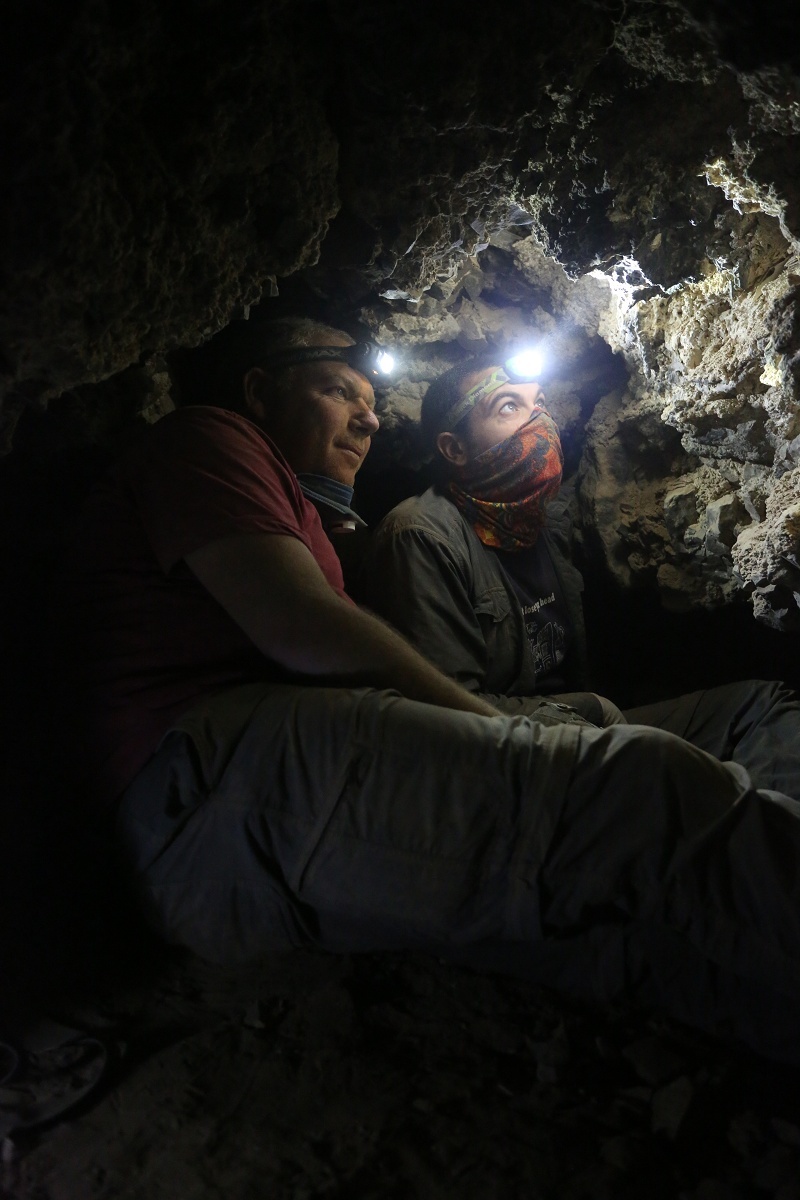
A number of biblical scroll fragments, featuring the books of Zechariah and Nahum, were found in a cave in the Judean Desert.
Israel Antiquities Authority (IAA) announced on Tuesday about the discovery of the manuscript fragments in the Cave of Horror, as well as other artifacts. In partnership with Archaeology Department of the Civil Administration in Judea and Samaria, the IAA launched an operation to save ancient artifacts from the caves in 2017. It was funded by the Ministry of Jerusalem Affairs and Heritage.
The study of the fragments, which is said to be 2,000 years old, was conducted by IAA's Dead Sea Scroll Unit, led by Dr. Oren Ableman, Beatriz Riestra and Tanya Bitler.
"More than 80 fragments of different sizes have been uncovered, some of them carrying text, some not. Based on the script, we dated them to the end of the first century BCE, which means that by the time it was brought to the cave, the scroll was already a century old," Ableman shared, speaking to The Jerusalem Post.
In accordance with the researchers' assessment, the fragments matched with those that were discovered by Yochanan Aharoni in 1953. They include portions of the scroll of the book of Zechariah written in Greek, but the name of God was retained in paleo-Hebrew language.
Ableman said that such manner may had been done to show the "importance of the name of God."
The excerpts deciphered using the fragments reportedly formed Zechariah 8:16-17.
"These are the things you are to do: Speak the truth to one another, render true and perfect justice in your gates. And do not contrive evil against one another, and do not love perjury, because all those are things that I hate - declares the Lord," the verses say.
In the fragments, the word "streets" was used instead of "gates."
Ableman said that they have never seen like it before.
"In this manuscript, we can see the effort of the translators to remain closer to the original Hebrew compared to what happened with the Septuagint," Riestra said, reacting on the manner of translation.
She further said that the practice of retaining the name of God in Hebrew language was already observed in other Dead Sea Scroll fragments discovered years ago, as well as in other manuscripts of Cairo Genizah.
Atlanta Jewish Times revealed that verses Nahum 1:5-6 were also reconstructed by the unit.
In addition to fragments of the biblical manuscripts, the team also found Bar Kochba Revolt coins, 6,000-year old mummified child and a well-preserved woven basket which is believed to be 10,500 years old.
The bronze coins bear a vine leaf and a palm tree.
Donald Ariel, head of IAA's Coin Department, stated that having coins is an expression of freedom during those times. In addition, he said that the palm tree was Judea's "quintessential symbol," which the Romans also used in their Judea Capta coins.
The skeleton of a child, discovered in a shallow pit, has undergone a process of natural mummification. It was found in fetal position and was wrapped in a blanket.
The prehistoric basket, with a capacity of 90 liters, is believed to be the oldest ever seen.
IAA Director Israel Hasson hopes that the discovery would encourage the country to support their operation.
"The aim of this national initiative is to rescue these rare and important heritage assets from the robbers' clutches. The newly discovered scroll fragments are a wake-up call to the state. Resources must be allocated for the completion of this historically important operation. We must ensure that we recover all the data that has not yet been discovered in the caves, before the robbers do. Some things are beyond value," Hasson stated.
Hananya Hizmi, head staff officer of Archaeology Department, said that the discoveries have "shed even more light on the different periods and cultures of the region."
"The finds attest to a rich, diverse and complex way of life, as well as to the harsh climatic conditions that prevailed in the region hundreds and thousands of years ago," Hizmi further stated.























